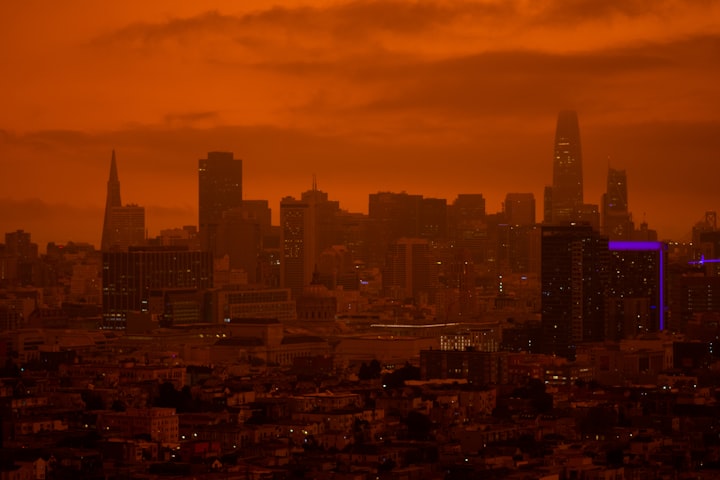The View from the Dumpster (Pt. 2)
Clotilda and my original intent

The View from the Dumpster, About Clotilda, and My Original Intent
When I started the view from the dumpster blog it was to talk about waste, recycling, and other environmental issues. Lately, some of my posts have dealt with religion, politics, and race relations. I’m sure that many of you were thinking that I’ve bumped my fool head. While it is true that I have bumped my head on more than one occasion, I assure you that there is method to this madness. Really it involves a lot of madness of both types; my anger with the state of the world and the pure madness of the world and those attempting to run it. What is missing is the understanding that all of these subjects are related, when you look at the world and its environment you have to acknowledge the ruling apes and all of their habits and peculiarities, especially when it comes to the relationship with each other and to the rest of the world. Everything that happens on this planet, whether it’s a butterfly farting in the Amazon or the bullshit being tossed around in DC, affects everything else.
This morning I was reading about the discovery of the Clotilda and her final resting place. The Clotilda was the last slave ship. She was used to smuggle in a load of human misery in late 1859 or early 1860, well after the enactment of the law prohibiting the import of slaves. After they arrived on the Mobile River, the slaves were transferred to another vessel and the Clotilda was torched to hide the evidence. It’s a fascinating part of our history and extremely well documented. After the war, the survivors and descendants couldn’t return home but opted instead to buy cheap land and create their own community, which came to be known as Africatown. A community of their own on land nobody else wanted. A community largely ignored by the rest of Mobile and Mobile County, ignored as far as any services or representation.
The proximity of the Mobile River did draw attention, from an industry looking to locate there and they did, building several different paper plants. Of course the region wanted the plants because of the money they would add to the local economy, but they didn’t want to give up there pristine homes when there was Africatown. From that point forward, Africatown was plagued by the air and water pollution, as well as land contamination, coming from those plants, and of course that’s precisely why they were put there, where it didn’t matter because there was no one of importance in Africatown. The lasting impact of this was unusually high incident rates of cancer among the residents. This scenario, a well documented one is a prime example of “environmental racism.” Sadly it is not a scenario unique to Africatown or Alabama. It was and maybe still is a common practice. Put the dirtiest industries in the least represented, poorest and undesired neighborhoods; cheap land, little resistance, and couldn't be seen by the proper folks on the other side of the tracks. While we refer to it as environmental racism, it’s not specific to any particular group. While poor black communities bear the brunt, it is also done in other areas, where the arrogance of those who can exceeds the abilities of the residents to protect themselves. Look around your community and you can find it there as well.
An interesting article about an archaeological discovery, focuses attention on a small community, brings to light political neglect, racial inequality and centuries of abuse, a community held together by kinship and faith with an occasional sprinkle of hope. All of it connected and intertwined.






Comments
There are no comments for this story
Be the first to respond and start the conversation.